It has not been my fashion to write contemporaneous reviews.
After all, if there is one thing I think we all agree the internet could use less of, it’s Some Guy’s Opinion On Stuff.
I have instead aimed to convey feelings as channeled through beloved bits of pop culture; I suppose you could say I’ve been writing memory pieces.
And now I can’t get The Plot Against America out of my head.
The HBO miniseries is, itself, a sort of memory piece–an adaptation of a book that was most certainly a memory piece, told masterfully from the point of view of Philip Roth’s younger, quasi-fictional self.
And of course, the very premise of the book represents a tinkering with our collective American memory–an “alternate history” (far too ‘genre fiction’ a label btw) of an America swept up by isolationist demagoguery in which Charles Lindbergh defeats FDR to become President, keeping the country out of World War II and allowing fascism of the Germanic variety to bloom on our shores.

The book, of course, evokes very specific memories for me, too.
There’s one in particular that my wife still chides me about.
I was smack in the middle of reading it the day I started grad school in 2006, and being my usual shy self, sat off in a corner absorbed in its pages while my new classmates milled about making introductions.
My wife, ca. 2020: “I was like, ew, who is that douchey guy reading his book?! Like, get up and say hi to people!”
I will admit to taking myself a tad too seriously at the time.
My shyness was, perhaps, a bit performative. So sue me.
Another classmate of mine had a slightly darker first impression:
“I thought you were a white supremacist or something. You were reading a book with a swastika on the cover.”
Oh, for the days when “white supremacist” was a distant abstraction.
A punchline.

Aesthetically, I remember being struck by Roth’s clever, even funny use of genre trappings to tell a subtle, personal story that reads like dream-inflected memoir (the title sounds like something you’d pick up at a Hudson News before your flight, and the Axis victory alternate history is Dad-fiction at its finest).
That was how you knew this was a Philip Roth joint. He didn’t tell the story straight up, painting clear lines between right and wrong, good and bad.
Instead, his young narrator (also named Philip Roth, a nice metafictional touch) sees the adult world the way children do–a place at times murky and too large to behold, at others painfully transparent in its hypocrisy, its cruelty, its inherent wrongness about things.
When I saw The Plot Against America pop up on my HBO GO, I was bummed out.
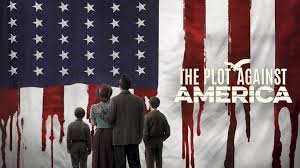
How could they turn a book like that into a successful TV series, and more importantly, why?
Meaning, a) why not just let a novel be a novel? Are we destined, in the 21st century, to be subjected to “the movie version” of absolutely everything? and b) is this story even relevant? It’s a little on the nose, the Nazi stuff, and more to the point, it seems borne of another era–the late Bush Jr. years, which, culturally, feel like they were a century ago.
But then I saw, “created by David Simon and Ed Burns.”

What more do you need to know?
Like everyone on the planet, I was/am/will always be obsessed with The Wire.
Unlike the majority of people on the planet, I also grew up in Baltimore and therefore (rather self-importantly) feel that I appreciate The Wire on a deeper level.
It got so many things right about my hometown, every episode filled with subtle, pitch-perfect observations.
It was like a love letter, an elegy and a manifesto that also happened to be a great cop show. And a great crime show. And a great political show. And a great human drama. And a–you get the idea.
Simon and Burns also know their way around a tight miniseries, and the working class enclaves of the northeast are their natural stomping ground.
See: Show Me A Hero, like all of their post-Wire work, a minor masterpiece (The Wire being a major masterpiece).

They belong to that class of creators that includes folks like the Coen brothers and Vince Gilligan. You watch their work and wonder why, if they can so consistently create material of such high quality, can’t everyone else?
I guess if it were that easy, everyone would.
The Plot Against America may be my favorite thing they have made in some time. Somehow, they pack the novel’s vast details and palpable sense of time and place into six hour-long episodes.
For this, they can share thanks with a team of top-notch directors and production designers. The show looks great and the story moves briskly and cleverly, never overplaying its hand, evincing that typical Simonian/Burnsian distrust of power without preaching or goading.
In fact, I found myself unable to stop thinking about Arthur Miller while watching it.
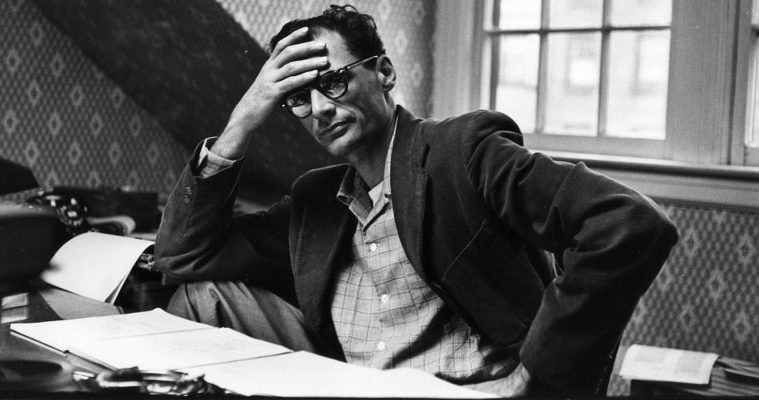
Like Simon and Burns and Roth, Miller was a product of the blue collar ethnic northeast, a poetic soul with a realist’s pessimism. He knew the struggles of the lower middle class in his bones–the collision between their lofty imaginings of America and the grinding machinery of the capitalist system in which they were situated.
His ghost inhabits the character of Herman Levin, played masterfully by Morgan Spector.

In one of very few slight departures from the novel, Herman, rather than young Philip, plays the central character role. But seen through the eyes of young Philip, he represents a figure familiar not only to anyone who has read Miller, but most any American who’s had a Dad.
His righteous outrage, his dogged insistence on believing in the institutions of power in a way that edges into vanity, his occasional emasculation in front of his children, the snotty disrespect shown by his son, the flailing, the posturing, the peacocking, the near-constant low-level defiance of his wife’s wishes, the strength, the determination, the protectiveness, the humility, the children’s eventual recognition that maybe he was right all along–these are elemental qualities of the 20th century American Dad and Simon and Burns’ script seeks neither to condemn nor exonerate, demonize nor deify him.
Unlike Miller’s work, this is not a tragedy. As things go between fathers and their families, it’s complicated.

Morgan Spector turns in an absolutely arresting performance as Herman. He is the heart of the series and owns it completely. And every other performer is on a par with him. It is some of the best ensemble work I’ve seen in a while and as a New York production, is filled with fantastic theater actors. I was delighted to see a few old friends and college classmates pop up here and there.
As far as the topicality of the show goes, do I really need to say anything?
You get it.
And it’s often an unsettling show to watch. Not only because of the obvious parallels between this alternate reality and our current one.
What’s more unsettling is to consider the distance between now and 2006, which is where my memory of this story begins.
I was in my twenties and intent, I suppose, on being an Angry Young Man. My anger, of course, was a luxury, and I imagined the book to be nothing more than a ghost story, one whose dark possibilities lay buried with our grandfathers.
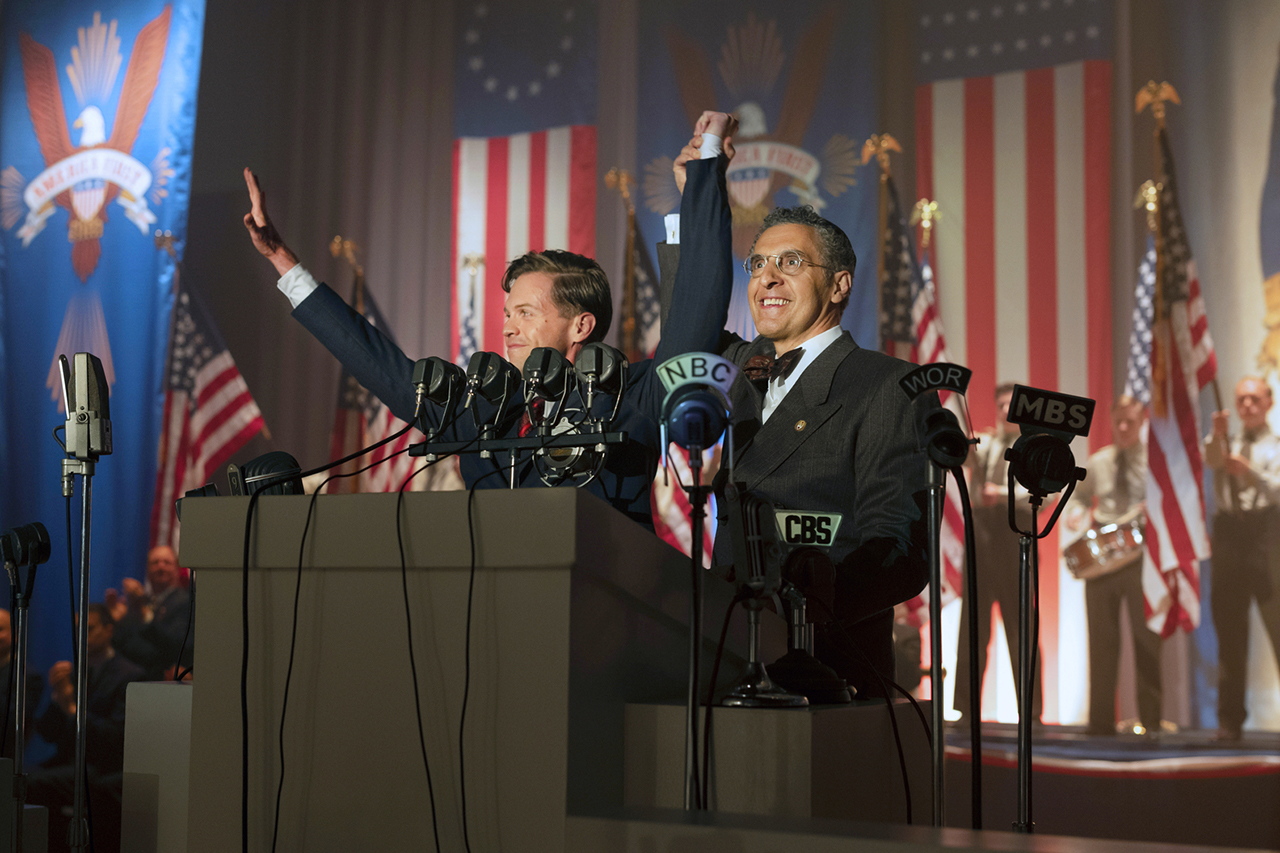

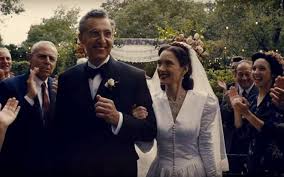
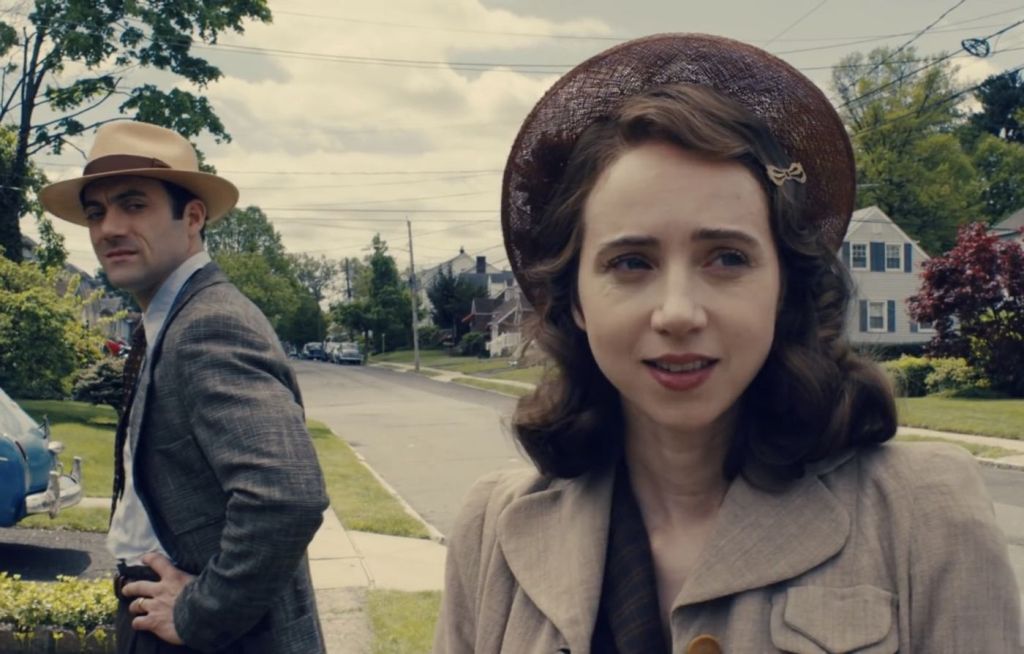



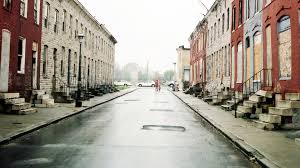
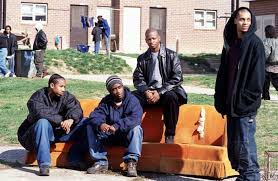
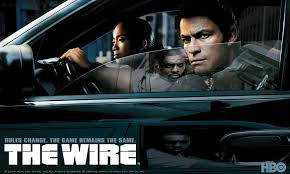
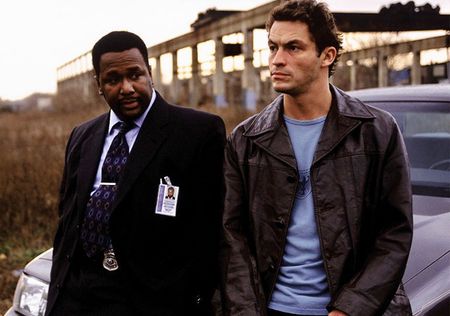

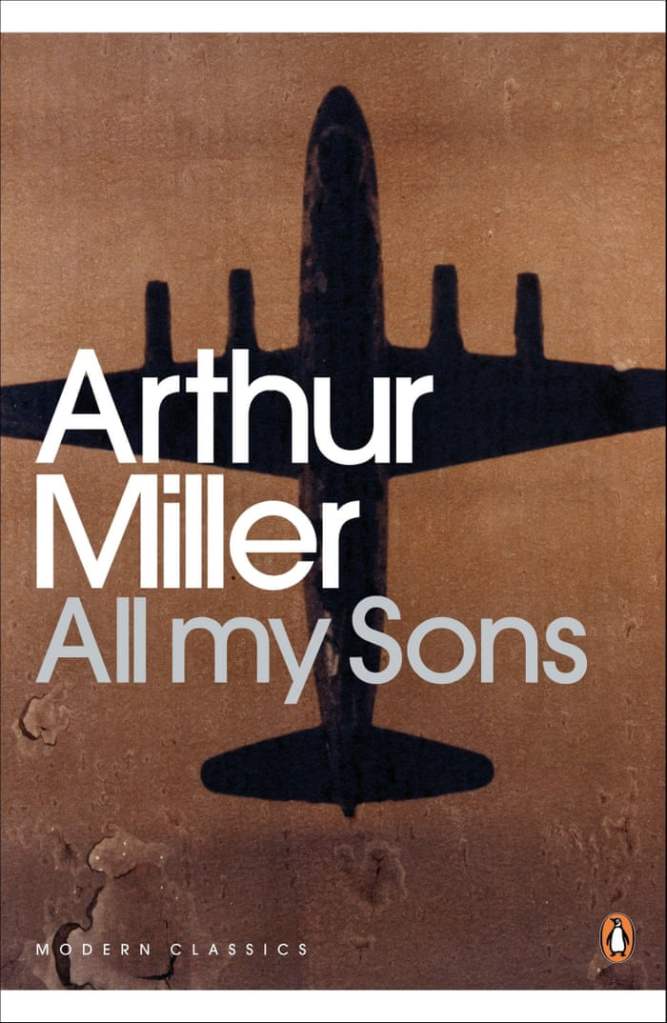
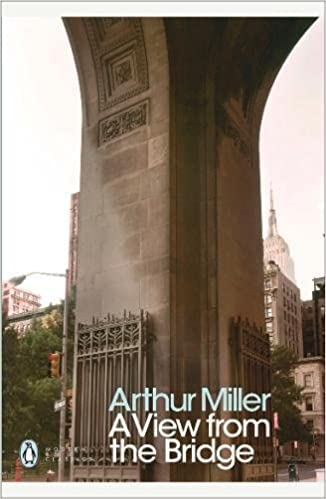
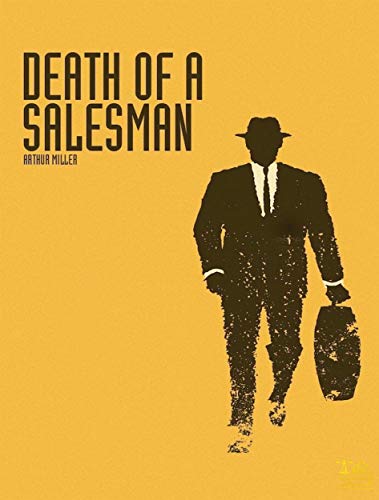
Starting this w a clean slate–would you suggest I read book first?
Watch miniseries first?
Read your review first?
Cheers.
LikeLiked by 1 person
Well, I always recommend starting with my reviews lol…I mean, if you have the time, I’d say start with the book. It’s really good and I think you’ll get more out of the series if you read it first. But the show’s also good enough that you don’t need to read the book first. Either way, you’re in good hands!
LikeLike
Has the plot ended?
LikeLiked by 1 person
Yup. 6 episode miniseries.
LikeLiked by 1 person
Maybe the episodes are more analytical than a full movie.🤔
LikeLiked by 1 person
Yeah I don’t think they could have done justice to the book in 2 hours. It would have sucked.
LikeLike
I love how you open this: when I used to write album reviews I was always at pains to point out how worthless my (or any other) opinion was. All that’s worth posting is the facts, be they about the material or about the writer’s response.
I’ve had The Plot Against America in the very tall stack of books next to my bed for several years (possibly a decade), and I didn’t even know it had been adapted, much less by those awesome Wire dudes. Time to read it, methinks! This is a really interesting, well-written reflection, thank you 🙂
LikeLiked by 1 person
Thanks! Yeah I try to steer clear of “reviewing” or recapping. I feel like you can find both things in ample supply all over the internet. What you said–reflections. Maybe that’s what I’m trying to do here.
Yes, may be a good time to dust off that book! It’s quite good. Have you read any other Philip Roth before?
LikeLike
Portnoy’s Complaint was formative for me, I read it in my mid-teens, but that’s the only one.
LikeLiked by 1 person
That’s all you need!
LikeLike
Tried High Castle and couldn’t get into it, although recognize its a quality production. I’ll give this one a try on your recommendation and thorough presentation – like your style!
LikeLiked by 1 person
Thanks! I had the same experience with High Castle. Plot is very different. No thriller/sci-fi elements. Fair warning however: not always a happy watch. I had to take a break after the first 3 or so because I felt bummed out after watching. But the back 3 are very strong. Enjoy and thanks for reading.
LikeLiked by 1 person
Was really impressed by this. Did you ever check out Treme and Generation Kill?
I’ve heard Simon and Burns might be returning to Baltimore for another series they are working on!
E
LikeLiked by 1 person
Thanks for stopping by and reading! Yes, watched all of GK and most of Treme. Both great, in my opinion. I really liked Treme, even though it kind of lacked the complexity and urgency of The Wire. Apples and Oranges. Treme, to me, was really just an homage to a magical city. As beautiful as The Wire in its own, very different way. I liked The Deuce, too, though I kind of bailed after Season 2…just so many shows to watch lol…And yes, I believe they are supposed to be making another show in Baltimore, but it is unrelated to The Wire. Good news–always good when business comes to Baltimore!
LikeLiked by 1 person
I haven’t read the book, but the mini-series has just been shown here in the UK.
LikeLiked by 1 person
Thanks for stopping by—well what do you think about the miniseries?!
LikeLiked by 1 person
I thought it was excellent – very well-written and very well-acted!
LikeLiked by 1 person